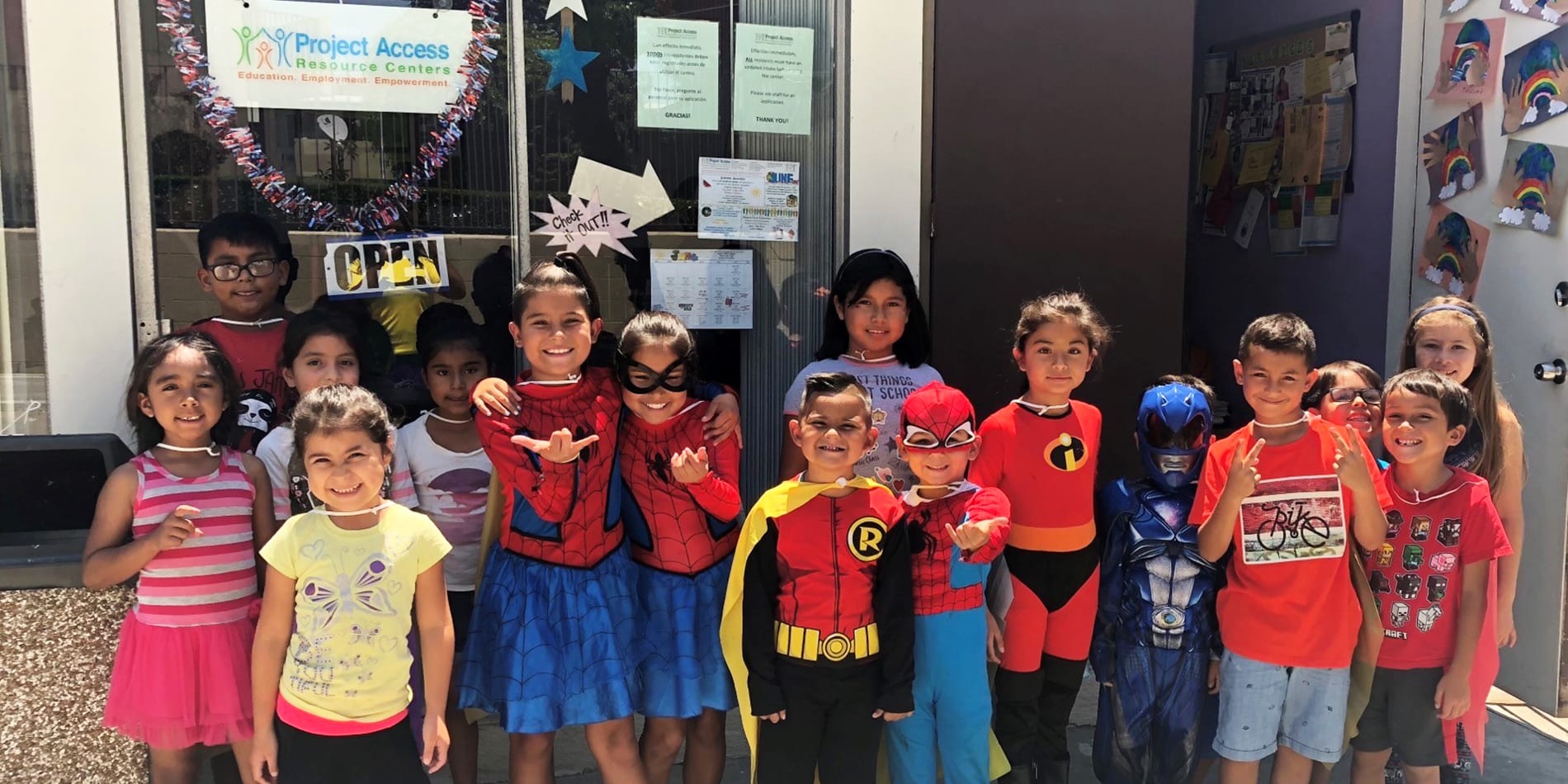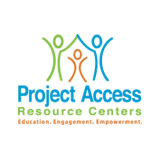
Founded in 1999, Project Access has been operating Family & Senior Resource Centers onsite in affordable housing communities. At these Centers, we provide access to tools, knowledge, and opportunities that cultivates strong communities, positive changes, and hopeful futures.
Our Resource Centers serve as a “one-stop-shop” to help families, children, and seniors cultivate strong communities, positive changes, and hopeful futures. This model of service delivery allows Project Access to directly impact the lives of families while eliminating service barriers by bringing services directly to resident communities, meeting residents where they are.
By addressing multiple factors that contribute to poverty, Project Access works to improve the quality of life of disadvantaged families and empower them to achieve economic self-sufficiency. In 2023, Project Access is positioned to serve more than 25,000 low-income children, families, and seniors through more than 80 Family & Senior Resources Centers across 16 states, including Arizona, California, Colorado, Florida, Georgia, Illinois, Maryland, Minnesota, Missouri, Nevada, North Carolina, South Carolina, Tennessee, Texas, Utah, and Washington.
Project Access programming cultivates strong communities, positive changes, and hopeful futures for families, children, and seniors living in low-income communities by providing programs and services that address economic stability, education, health & wellness, and community building. Our holistic programming also wraps financial literacy and health services into our key initiatives so the residents we serve receive care that sets the stage for long-term self-sufficiency and wellness. Project Access’s onsite presence, culturally competent staff, and proven history of impacting affordable housing communities allow us to overcome many traditional barriers to service access by bringing services directly to resident communities, meeting residents where they are.
Project Access’s core services include:
Economic Stability – To promote hopeful financial futures, services include financial literacy education (in partnership with financial institutions), job readiness workshops, interview preparation, and technology workshops and training. Program outcomes include improved planning and decision-making about financial future, increased job search skills and increased technology skills and access.
Health & Wellness – To promote good health and well-being, services include mental health education and workshops, health fairs, exercise classes, and preventative screenings. Program outcomes include increased knowledge of healthy habits and behaviors, increased access to healthy food and meals, and a plan to put learnings into action.
Education for Youth and Families – To promote resilient youth and caregivers, services include parenting workshops, rigorous after-school learning activities for youth grades K-12, and college and career readiness for teens. Program outcomes include increased social and emotional competencies, increased access to STEAM learning opportunities, increased knowledge of college / trade school eligibility requirements and financial aid options.
Community-Building – To promote safe communities and strong connections, services include community gatherings through cultural or holiday celebrations, community safety nights, and recreational activities for seniors. Program outcomes include strengthened social networks / reduced isolation and improved investment in the well-being of the community.
Become a supporter!
Donate or start a fundraiser
